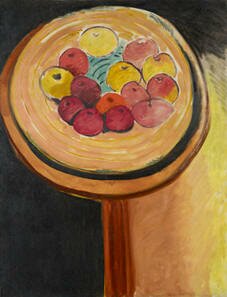See also our printable version: PDF (tri-fold, 2 pages)
 The goal of treatment is to kill the cancer cells while minimizing damage to normal cells.
The goal of treatment is to kill the cancer cells while minimizing damage to normal cells.
There are three basic goals of therapy.
o To manage the lymphoma as needed with minimal toxicity
(management intent)
o To achieve a durable remission or possible cure
(curative intent)
o To relieve symptoms or to address a tumor that is dangerous or impacting on your quality of life (palliative intent) ...
also called best supportive care.
It’s important to understand and agree with the intent or goal of therapy; the most appropriate goal depending on many factors, including the type of lymphoma, its aggressiveness, where it presents, your treatment history, age, performance and other factors.
Treatments may be systemic - delivering drugs into the blood to reach cancer cells anywhere in the body, or localized - to treat a specific area of the body.
Almost all treatment agents are selective to some degree. That is, they are designed to affect the targeted cells (cancer cells) more than the normal cells. For example, many chemotherapy drugs affect rapidly dividing cells and will therefore damage mainly cancer cells, but also some normal cells that divide rapidly.
The experience of cancer treatment can vary a lot. Some will experience little discomfort and be able to continue work and family activities with little disruption. But sometimes the experience of treatment requires close monitoring and extensive after care.
Additionally, the following factors can influence the treatment experience and the outcomes:
o Your age and health status
o The treatment agents
o The unique sensitivities you may have to treatments
o How closely you follow doctor’s instructions
o How honestly and promptly you report problems
Try to be positive about the chosen treatment. Sometimes your anxiety about treatment can disrupt life more than the therapy, and can make recovery more challenging than it need be.
Learn what you can do to manage or prevent side effects and complications (the focus of what follows), so that you will have the best chance to have a great outcome.
Tips for Getting Through Cancer Treatment
 Keep physically active - and continue to exercise within your limits
Keep physically active - and continue to exercise within your limits
Avoid taking herbs and vitamin supplements without consulting with your oncologist.
Avoid prolonged sun exposure. (A yearly skin check is also recommended.)
Avoid very hot baths to decrease the risk of Hand/Foot Syndrome and infection. See also Hand-Foot Syndrome - Chemocarer
Avoid uncooked foods; and thoroughly wash vegetables and fruits, including the skins - when your blood cell counts are low.
Record any side effects and share with your doctor. We don't all react to the same drugs in the same way and sometimes protocols have to be changed or modified based on individual reactions.
Maintain hydration
o Drink plenty of water daily to keep tissues hydrated, reduce constipation, and to help remove toxins from your bladder, liver and kidneys.
o For each cup of coffee, tea, cola drink, or cocoa, take an extra cup of water. Chocolate also requires extra water.
o Avoid alcohol because it's also dehydrating and adds unnecessary toxicity.
Ask your doctor about laxatives and stool softeners if needed.
See also Fighting Constipation below
Have available small portions of food and drink,
which require little or no preparation: broth-based soups, canned fruit, crackers, fruit juice …
Treatment may increase the need for sources of digestible protein.
Minimizing risks of oral complications:
o Avoid sticky, crunchy foods; and foods that are hot, spicy, or high in acid, like citrus fruits and juices.
o To help with swallowing, soften your food with gravy, sauces, broth, yogurt, or other liquids.
o Avoid toothpicks and tobacco products.
o When your mouth hurts, call or fax your doctor or nurse.
o Use extra-soft toothbrush after meals and at bedtime. Soften in warm water.
o Use a fluoride toothpaste; avoid mouthwashes that contain alcohol.
o Gently floss your teeth daily. Avoid areas that are bleeding or sore.
If your blood counts are low check with doctor or nurse before flossing.
o Rinse several times daily with solution of
1/4 teaspoon baking soda and 1/8 teaspoon salt in one cup of warm water.
Follow with a plain water rinse.
o Suck on ice cubes to relieve sores - be sure that the water is pure (boil if from a well).
o Discuss with your doctor or dentist about your dentures that don't fit.
Constipation management:
o Contact your doctor if it persists or worsens.
o Keep hydrated (drink water) and avoid caffeine.
o Include fiber in your meals (such as whole grains).
o Get regular exercise (such as walking).
Nausea management:
o Avoid foods that are high in fat, which tend to remain in the stomach longer than other foods and may contribute to nausea.
o Chew slowly, take small bites, sip liquids with meals; avoid offending foods and odors - breath through your mouth when needed.
o Try smaller, more-frequent meals.
Diarrhea management:
Uncontrolled diarrhea can lead to fluid depletion, electrolyte imbalance, skin damage, and even death if it persists too long.
The following was adapted from Diarrhea in Cancer ACS
Take medicine for diarrhea as prescribed.
- inform your doctor if the meds are not helping because
changing the prescription can make all the difference.
- keep track of the amount and frequency of bowel movements.
Try
-eating small amounts of foods that are easy to digest such as rice, bananas, applesauce, yogurt, mashed potatoes, low-fat cottage cheese, and dry toast.
- clear liquid diet (one that includes water, weak tea, apple juice, peach or apricot nectar, clear broth, Popsicles, and gelatin with no solids added) as soon as diarrhea starts or when you feel that it’s going to start.
Include
-foods that are high in potassium (such as bananas, potatoes, apricots, and sports drinks like Gatorade® or Powerade®). Potassium is an important mineral that you may lose if you have diarrhea.
Avoid
- acidic drinks, such as tomato juice, citrus juices, and fizzy soft drinks.
- milk or milk products if they seem to make diarrhea worse.
- greasy foods, bran, raw fruits and vegetables, and caffeine.
- pastries, candies, rich desserts, jellies, preserves, and nuts.
- alcohol or use tobacco.
- very hot or spicy foods.
After movements
- clean your anal area with a mild soap after each bowel movement, rinse well with warm water, and pat dry. Or use baby wipes to clean yourself.
- apply a water-repellent ointment, such as A&D Ointment® or petroleum jelly, to the anal area.
- sitting in a tub of warm water or a sitz bath may help reduce anal discomfort.
Related resources
.gif) |
Cancer and diarrhea MedlinePlus
|
.gif) |
Diarrhea in Cancer ACS
|
.gif) |
A randomized trial of yogurt for prevention of antibiotic-associated diarrhea.
Dig Dis Sci. 2003 Oct;48(10):2077-82. PMID: 14627358 | Related articles
|
Reduce your risk of infection while your blood counts are low:
.gif) |
Ask your doctor about growth factors (Neupogen® and Leukine®)
that may help granulocytes to recover more quickly to reduce your risk of infection while on treatment.
|
.gif) |
Avoid touching your eyes, nose, mouth, ears, etc.
without first washing your hands with warm soapy water.
|
.gif) |
Be aware of sources of contamination: public places,
raw foods, cutting boards, plates, dish towels, door knobs, counter tops, and sponges.
|
.gif) |
Use separate cutting boards for fresh produce and raw meat.
Use separate dish towels when handling raw meat; use disposable types.
|
.gif) |
See also Tips on self-administration of subcutaneous injections such as for Neulasta or Neupogen.
|
Being around kids during treatment?
See patient-to-patient advice
Try Relaxation techniques during treatment, such as mediation, prayer, walking, and dance.
Get Adequate rest, take naps as needed.
 The goal of treatment is to kill the cancer cells while minimizing damage to normal cells.
The goal of treatment is to kill the cancer cells while minimizing damage to normal cells. Keep physically active - and continue to exercise within your limits
Keep physically active - and continue to exercise within your limits